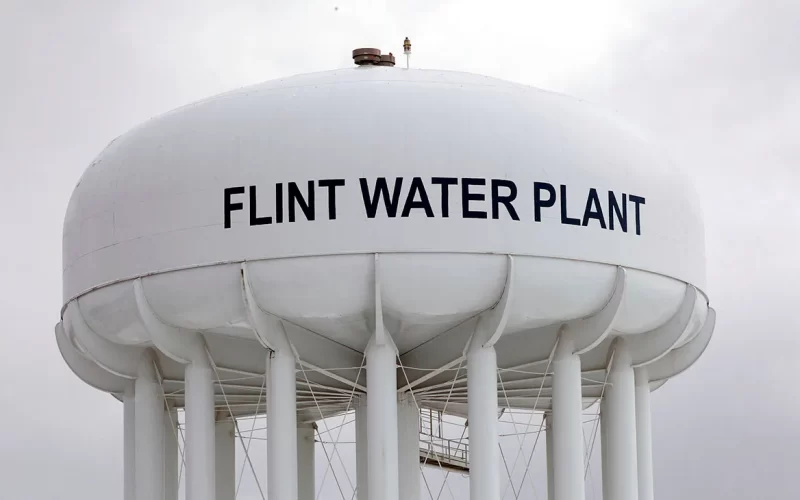Lead and Copper (Hart, 2023)
William Hart shows up with enough receipts in Lead and Copper to dismay even the most hardened pessimists and persuade … who exactly?
That’s not meant as an indictment of Hart or the film. It just feels to me that for the last decade or perhaps a little longer, Western audiences have been told by journalists and documentarians that our problems are not just dire, they are unsolvable. Consequently, a resignation has seemingly settled on American culture.
An Inconvenient Truth and the films of Michael Moore (especially Sicko and Bowling for Columbine) may not have been tipping points, but they now seem like pivot points. One can still hear in the former echoes of prophets past, urgently forecasting a future that was nigh but not yet inevitable. But then came 9/11, a war on terror that substituted fear of imminent death for worries about imminent extinction. By the time the 2014 presidential election cycle came, relentless cries of “fake news” as a non-response to any kind of inconvenient evidence of anything, helped transform a significant portion of the culture from truth skeptics to truth agnostics. When COVID-19 led only to hundreds of thousands of avoidable deaths rather than an apocalyptic disintegration of society, Americans became further polarized and entrenched in competing political agendas. Even the direst problems would no longer be treated as in need of solution so much as opportunities for advancement and blame-apportionment.
Tell me none of this is the film’s fault, and I won’t argue. But I do find myself wondering what the goal is when making such documentaries. In the wake of so much apathy and resignation, where outrage seems a distant relic of a forgotten time and local fears have calcified into general anxieties, can such films be agents of change? If not, what are they good for?
Even the director’s statement in the press kit is telling. While Hart calls the film a “call to action,” the action he calls for is “vigilance for our infrastructure environment.” But isn’t the whole point of the film that vigilance has already lapsed? It turns out that the unhealthy drinking water in Flint, Michigan was no more a local problem than was the flooding of New Orleans in the wake of Hurricane Katrina. By the end of the film, this nationally-covered local problem is revealed to be, in fact, a national problem, with one of those dotted maps (so depressingly familiar in the post-Covid era) showing various municipalities with unsafe levels of contaminants in the drinking water. Hart also says the film is a call for “accountability,” which is well and good but is usually apportioned after the fact. What is last environmental crisis for which citizens held anyone accountable? The closest I can think of is the case in Dark Waters, though the ending of that film suggests accountability and responsibility and two vastly different outcomes.
It’s worth noting within all this pessimism that Flint has replaced 95% of its pipes and (as of 2022) has been in compliance with federal standards for over six years. Fixing infrastructure doesn’t negate the damage that neglect caused, and its not as interesting or dramatic as documenting system failures. In that context, the film’s pivot from Flint to Newark is defensible but also suspect. It certainly fits the metanarrative of a nationally failing infrastructure, but if Flint is representative of a bigger problem, shouldn’t its responses to the crisis be as instructive as the causes of that crisis?

